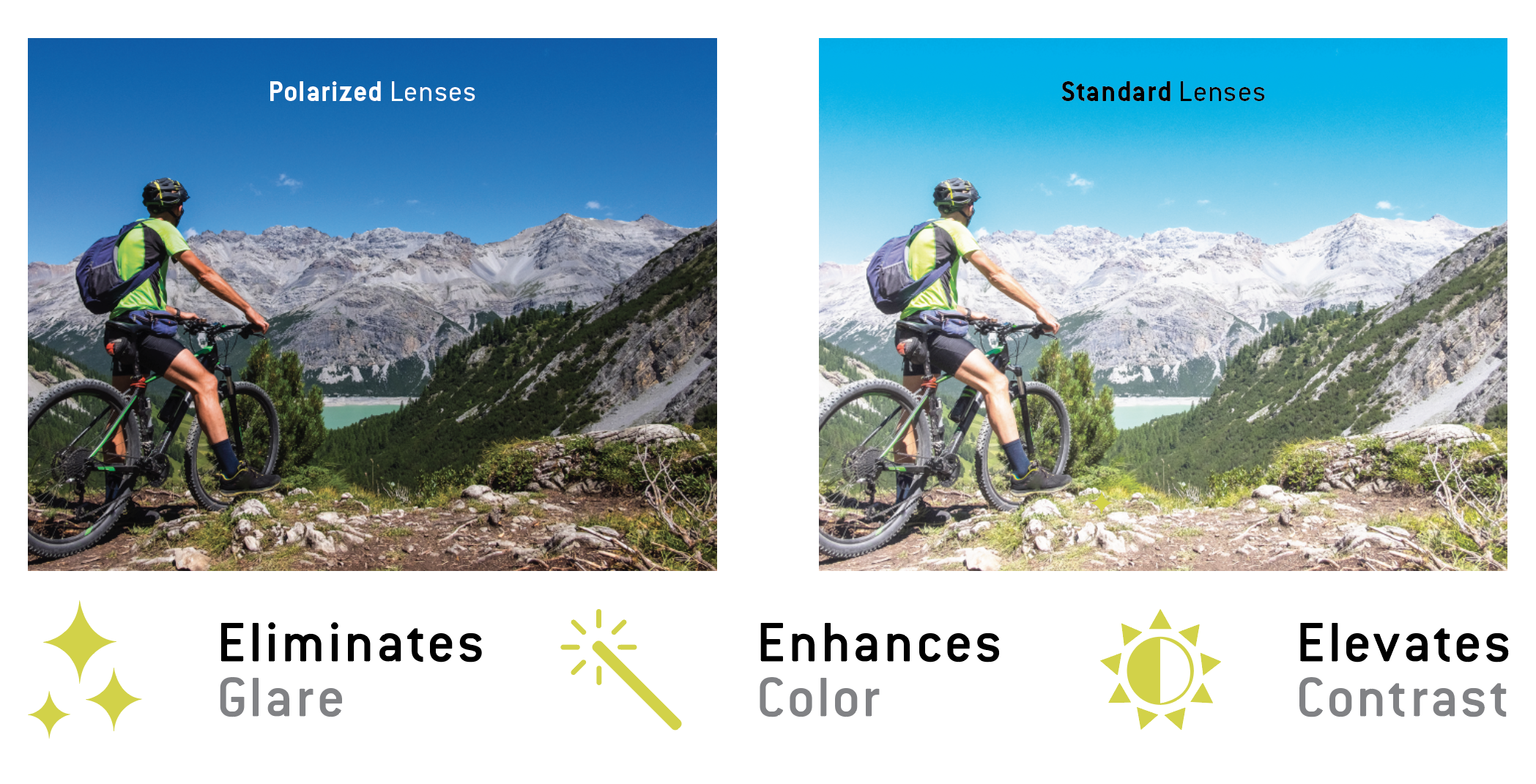
Polarization in Safety Eyewear— Is It Important?
Who hasn’t experienced the effects of glare from wet or shiny surfaces when outside? This glare can harm our vision, and cause our surroundings to become hazardous. If this is something you’ve struggled with, polarized lenses could be the answer you’re looking for. Below, we’ve expanded on what polarized lenses are, the effects of glare, and polarized lenses versus regular lenses and whom they benefit. This information will allow you to make the best decision on determining if polarized lenses are for you.
What are Polarized Lenses?
Polarization refers to the way light passes through the lenses. Polarized safety glasses have a unique coating that scatters light as it makes its way to your eye, therefore blocking reflections and glare that might obscure or affect your vision. This ensures you have maximum possible visibility.
While most polarized lenses provide general protection from the sun’s ultraviolet rays, polarized and UV protection are not interchangeable terms. Polarized lenses don’t offer UV protection unless labeled otherwise.
At Pyramex, all current polarized eyewear has UV protection and is compliant with the ANSI standards.
 Effects of Glare
Effects of Glare
Reflected light affects countless workers by causing glare and reducing visibility. This ultimately has the potential of hiding hazards and dangers, creating an environment where workers are unable to recognize unsafe workplace conditions. Some effects of glare include impaired depth perception, distorted view and colors, and loss of visual performance. Squinting to reduce glare can also cause headaches from repetitive eyestrain.
 Polarized Lenses Vs. Regular Lenses
Polarized Lenses Vs. Regular Lenses
Protecting your eyes from bright lights is essential, and sometimes just any tinted lens won’t do the trick.
Unlike regular tinted glasses, polarized lenses drastically cut glare. The popularity around polarized lenses is due to their reduction in glare without sacrificing clarity, performance, or durability. With polarization, you get the protection of regular safety glasses with added visual comfort.
The enchantment in color perception that polarized lenses provide allows for better visual clarity compared to the over-exposure your eyes would process when wearing regular safety glasses, therefore reducing eye stress and fatigue and decreasing headaches caused by overexposure to glare.
Moreover, non-polarized lenses only reduce the amount of light that comes through the glasses, treating all sunlight equally and reducing the overall intensity. They make it easier to see in intense light, but they don’t offer protection for glare.
In some cases, such as using LCD screens, non-polarized lenses are the better option. LCD screens also use polarizing filters and can appear turned off when viewed through polarized glasses.
In many day-to-day situations, non-polarized lenses can increase visibility and clarity; however, when your daily tasks involve glare, that’s when polarized lenses are optimal.
Who Are Polarized Lenses For?
Polarized lenses are an excellent option to consider for anyone who spends much time outdoors. It reduces the bright reflections, eliminates unwanted glare, and can improve your vision under challenging circumstances. Anyone working around water, metal, or large flat surfaces that reflect sunlight would encounter glare and benefit from polarized lenses. This includes construction workers, roofers, landscapers, and truck drivers, to name a few.
Polarized lenses aren’t just ideal for work. Any activity that involves rapid changes in lighting conditions, such as fishing, running, cycling, or hunting, may benefit from these lenses.
If you find yourself working outside and faced with glare, polarized lenses could be an excellent solution for you. The ability to cut glare allows for visual comfort and improved vision in challenging circumstances. Gone are the days of eye fatigue, strain, and headaches. Polarized lenses are ideal for not only better sight while on the job, but also a better quality of eye health.
To learn more or view our range of polarized glasses visit our website.



